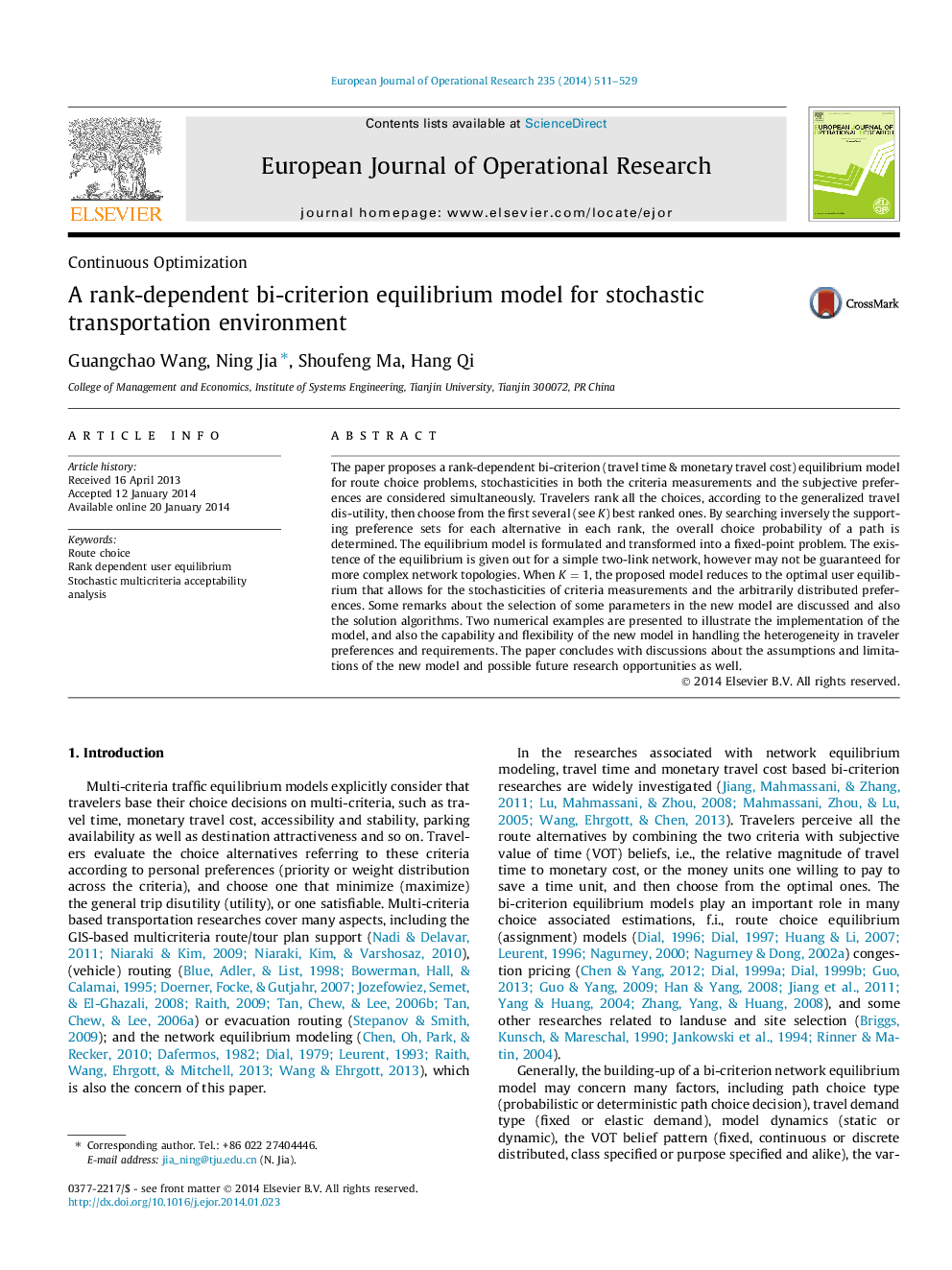| Article ID | Journal | Published Year | Pages | File Type |
|---|---|---|---|---|
| 476663 | European Journal of Operational Research | 2014 | 19 Pages |
•The paper proposes a rank-dependent bi-criterion user equilibrium model.•Stochasticities in criteria measurements and traveler preferences are considered.•It reduces to the user-equilibrium model when only the first rank is considered.•Shows flexibility in describing travelers’ bounded rationality in various levels.
The paper proposes a rank-dependent bi-criterion (travel time & monetary travel cost) equilibrium model for route choice problems, stochasticities in both the criteria measurements and the subjective preferences are considered simultaneously. Travelers rank all the choices, according to the generalized travel dis-utility, then choose from the first several (see K ) best ranked ones. By searching inversely the supporting preference sets for each alternative in each rank, the overall choice probability of a path is determined. The equilibrium model is formulated and transformed into a fixed-point problem. The existence of the equilibrium is given out for a simple two-link network, however may not be guaranteed for more complex network topologies. When K=1K=1, the proposed model reduces to the optimal user equilibrium that allows for the stochasticities of criteria measurements and the arbitrarily distributed preferences. Some remarks about the selection of some parameters in the new model are discussed and also the solution algorithms. Two numerical examples are presented to illustrate the implementation of the model, and also the capability and flexibility of the new model in handling the heterogeneity in traveler preferences and requirements. The paper concludes with discussions about the assumptions and limitations of the new model and possible future research opportunities as well.
